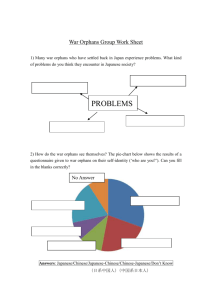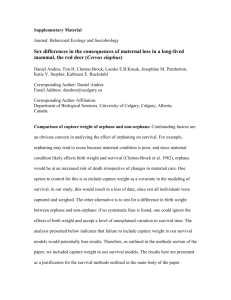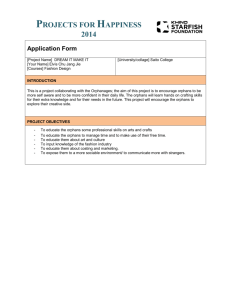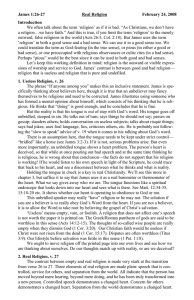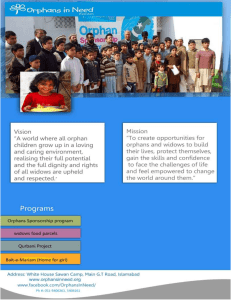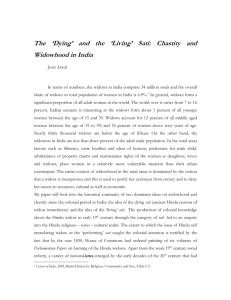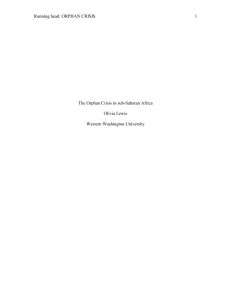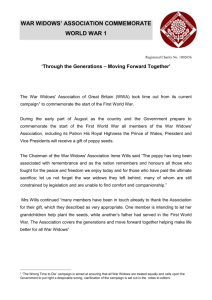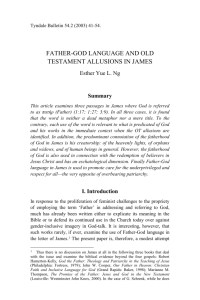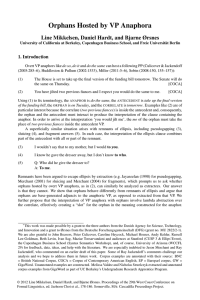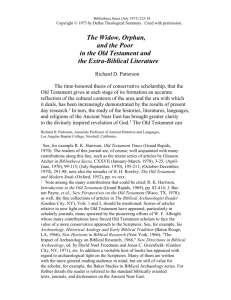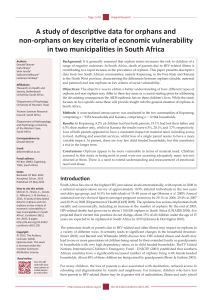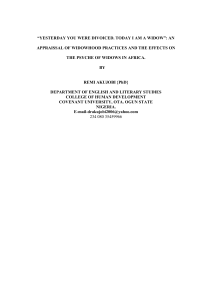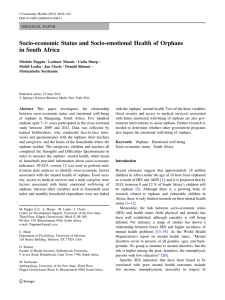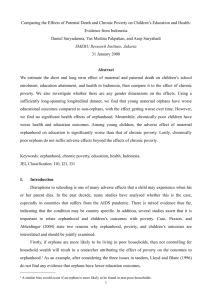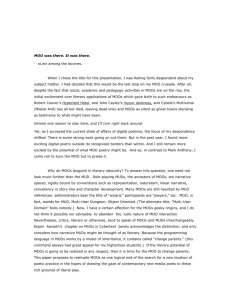The challenge is to memorize James 1:27.
advertisement
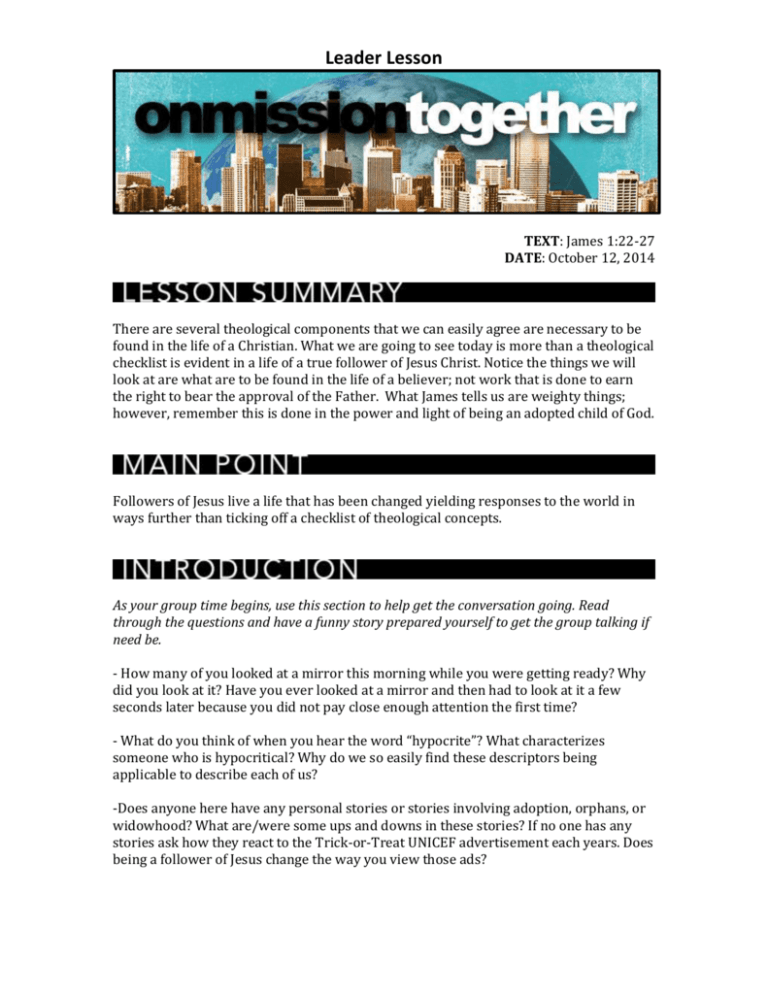
Leader Lesson TEXT: James 1:22-27 DATE: October 12, 2014 There are several theological components that we can easily agree are necessary to be found in the life of a Christian. What we are going to see today is more than a theological checklist is evident in a life of a true follower of Jesus Christ. Notice the things we will look at are what are to be found in the life of a believer; not work that is done to earn the right to bear the approval of the Father. What James tells us are weighty things; however, remember this is done in the power and light of being an adopted child of God. Followers of Jesus live a life that has been changed yielding responses to the world in ways further than ticking off a checklist of theological concepts. As your group time begins, use this section to help get the conversation going. Read through the questions and have a funny story prepared yourself to get the group talking if need be. - How many of you looked at a mirror this morning while you were getting ready? Why did you look at it? Have you ever looked at a mirror and then had to look at it a few seconds later because you did not pay close enough attention the first time? - What do you think of when you hear the word “hypocrite”? What characterizes someone who is hypocritical? Why do we so easily find these descriptors being applicable to describe each of us? -Does anyone here have any personal stories or stories involving adoption, orphans, or widowhood? What are/were some ups and downs in these stories? If no one has any stories ask how they react to the Trick-or-Treat UNICEF advertisement each years. Does being a follower of Jesus change the way you view those ads? Leader Lesson Spend time beforehand reading through the text and answering these questions so you are prepared when you lead. Also, think through the potential questions your people may ask. Background: We are looking at the words of James the half-brother of Jesus inspired by the power of the Holy Spirit. James in chapter 1 verses 2-18 encourages believers to stay faithful during difficult circumstances, that we should honestly ask God for wisdom and He will provide it, that we must trust the Lord for our future and not our own power, and a reminder that God is never the one that tempts us to sin. The passage immediately following is on treating each other fairly; we are not to be looking for outward signs of importance based upon wealth (James 2:2-7). > HAVE A VOLUNTEER READ James 1:22-25 What is the comparison that James uses in verses 23-25? Reading the scriptures without them changing your life does not make one bit of sense. According to verse 24 it is like looking in a mirror and forgetting what you look like, something that is unthinkable. However, how often do we just read the Bible in the morning as a part of our morning routine? This is not an exhortation to stop reading the Bible; the Spirit seems to take pleasure in working through the Word of God in miraculous ways (Romans 10:14-21), continuing with the metaphor how will you know what needs to be changed unless you look at the mirror (Bible)? On this point Dr. Douglas Moo (Wheaton Seminary Professor) says, “lest anyone misconceive what ‘receiving the word’ involves, James spells out what he means in verses 22–27. In doing so, we are taken right to the heart of James’ pastoral concern. However important may be mental assent to the word, it has not been truly received until it is put into practice. ‘Hearing’ the word is, of course, necessary and important—it would be a fatal misunderstanding to think that James is against listening to the word. But what James strenuously opposes is any hearing of the word that does not lead to doing.”1 On this note, as we transition into talking on the importance of caring for the orphan and widow look for ways the Holy Spirit is guiding you to change and not just look at these topics with a passing glance. For help on studying the Bible to begin to apply it more each day you can use a free resource such as Look at the Book through Desiring God http://www.desiringgod.org/labs or talk to Pastor Jon for advice. > HAVE A VOLUNTEER READ James 1:26-27 According to verse 26, what renders religion useless and self-deceptive? James says that someone without a controlled tongue has religion that is useless and leads to deceiving yourself. Moo, Douglas J. James: An Introduction and Commentary. Vol. 16. Downers Grove, IL: InterVarsity Press, 1985. Print. Tyndale New Testament Commentaries. 1 Leader Lesson If you have grown up in church this is something that you might think at first you have nothing to worry about, after all I never say a curse word, at least in public. If you find yourself there think through a few other situations that you might be glancing over. Do you find yourself gossiping about the actions of others? Consider if some of your prayer requests are in more in line with gossip or seeking the person’s welfare. Do you find yourself saying things towards referees or the other team that probably should not be said? Do you fail to speak up for the cause of the widow or orphan when you have the opportunity? Take some time as a group to discuss ways to be more intentional in not only not saying the wrong thing, but also using your words to support those in their time of need. What is pure and undefiled religion according to James 1:27? 27 Pure and undefiled religion before our God and Father is this: to look after orphans and widows in their distress and to keep oneself unstained by the world. (HCSB) Living out a faith that is pure and undefiled goes beyond mere intellectual assent or a theological checklist, but caring for people in their time of need. As Christians we cannot just stand behind the global realities of orphans and base it by as if nothing is wrong. Dr. Moo notes, “We must keep in mind that James is not attempting here to summarize all that true worship of God should involve. As Calvin says, ‘he does not define generally what religion is, but reminds us that religion without the things he mentions is nothing …’.5 Religious ritual, if done from a reverent heart and in a worshipful spirit, is not wrong—and God’s word cannot be ‘done’ unless it is first ‘heard’. But James is concerned about an over-emphasis on the ‘hearing’ to the neglect of the ‘doing’.”2 Please do not take James 1:27 lightly, remember God’s immense care for us in our time of need. Ephesians 1:5-6 says, “5 He predestined us to be adopted through Jesus Christ for Himself, according to His favor and will, 6 to the praise of His glorious grace that He favored us with in the Beloved.” (HCSB) Recently evangelicals have been known for being especially concerned with the plight of the orphan, but this has been a natural response to the Gospel for centuries. “The Christian Church continued its veneration of the virtue of charity throughout the middle ages…. Will Durant notes the following: But never had the world seen such a dispensation of alms as was now organized by the Church . . . . She helped widows, orphans, the sick or infirm, prisoners, victims of natural catastrophes; and she frequently intervened to protect the lower orders from unusual exploitation or excessive taxation. In many cases, priests, on attaining the episcopacy, gave all their property to the poor. Christian women like Fabiola, Paula, and Melania devoted fortunes to charitable work.” (quoted from http://www.christiancadre.org/member_contrib/cp_charity.html) What are you going to do for the widow and orphan? Calvin J. Calvin, Commentaries on the Catholic Epistles, trans. by John Owen (Edinburgh, 1855; Eerdmans, 1948). 5 Calvin, p. 299. 2 Moo, Douglas J. James: An Introduction and Commentary. Vol. 16. Downers Grove, IL: InterVarsity Press, 1985. Print. Tyndale New Testament Commentaries. Leader Lesson Help your group identify how the truths from the Scripture passage apply directly to their lives. Create some talking points for the group by looking at the practical implications of the lesson. Get group members to talk about the real life implications of the passage. Look also at what can be applied specifically in context to the faith family at Fairview. 1. Pray each day for the next two weeks about adopting, joining the foster care program, volunteering to care for widows, or giving financially to help others undergoing these processes. 2. Have a methodology (such as journaling or talking to a friend) that requires you to share what you are learning from the Word and how it is changing your life. Do not just metaphorically look at the mirror and change nothing. 3. Volunteer as a community group quarterly to help children or the elderly. A few options include: http://www.tennesseechildrenshome.org ; Monroe Harding Scarborough Cottage (615) 712-8037 ; Big Brothers Big Sisters (615) 329-9191 ; or Elmcroft of Lebanon (615) 549-8588. James 1:27 “Pure and undefiled religion before our God and Father is this: to look after orphans and widows in their distress and to keep oneself unstained by the world.” (HCSB) Close your time in prayer. Pray that we would remember that you adopted us as heirs to your kingdom through the work of Christ. Help us to live out this reality in all spheres of our life and not just remember this when we talk about orphans a few times a year. May we feel your heart on the burden of the amount of orphans and the large amount of widows alone at nursing homes. May we do this out of a love for you and never to try and get us to love you more, for you paid it all on the cross and we thank you so much for that reality! Midway through this week, you might consider sending a follow-up note/phone call/email to your group with some or all of the following information: Ask if they are still praying daily for the people on their list to come to know Jesus. Leader Lesson Ask what steps they are taking to be involved in orphan and widow care? Talk about ways they would like to see our community group interact more with those in need in our community. Consider these ways as an opportunity for your group to become more involved and closer together. The challenge is to memorize James 1:27.
